Applying AI to MRI
How an Oxford University spinout is helping give patients a clear diagnosis

Against the rising tide of liver disease, Perspectum, a University of Oxford spinout, has developed the first mainstream applications of artificial intelligence using MRI to help treat metabolic disease.
Here’s how Oxford’s culture of innovation, and world-class medical teaching and research, supported the now-global, but still Oxford-based, company.
When Dr Rajarshi Banerjee was researching how to improve the use of MRI in cardiology for his DPhil, he hoped that the advances might one day be put to good use in the liver.
Poor diet and lack of exercise have driven a worrying global rise in Non Alcoholic Fatty Liver Disease (NAFLD), which the British Liver Trust estimates affects one in five people in the UK alone. It can be a precursor to Non Alcoholic Steatohepatitis (NASH) which can ultimately lead to cirrhosis, liver cancer and liver failure. But the problem for doctors tackling this rising health problem is that liver scans are traditionally taken on ultrasound machines which, as Dr Banerjee explains, have limitations.
'With conventional scanning techniques and equipment, doctors get little more than a silhouette of the liver,' he says. 'That's useful to a certain degree, but it doesn't let you get a detailed picture. It's a little like when someone stands against the sun in a photograph, you get more of an outline than the detail you need. I suspected there had to be a way of using MRI to get a far more detailed view, like we were able to with the heart and brain.'
The challenge was iron. The liver has high levels of iron which can vary between one patient to another. Even a person's own liver iron levels can fluctuate from one day to the next. Given that MRI works through magnetic imaging, this was a problem. However, the breakthrough for Dr Banerjee came when he decided to use MRI to first measure, and then compensate for, iron levels in each patient.
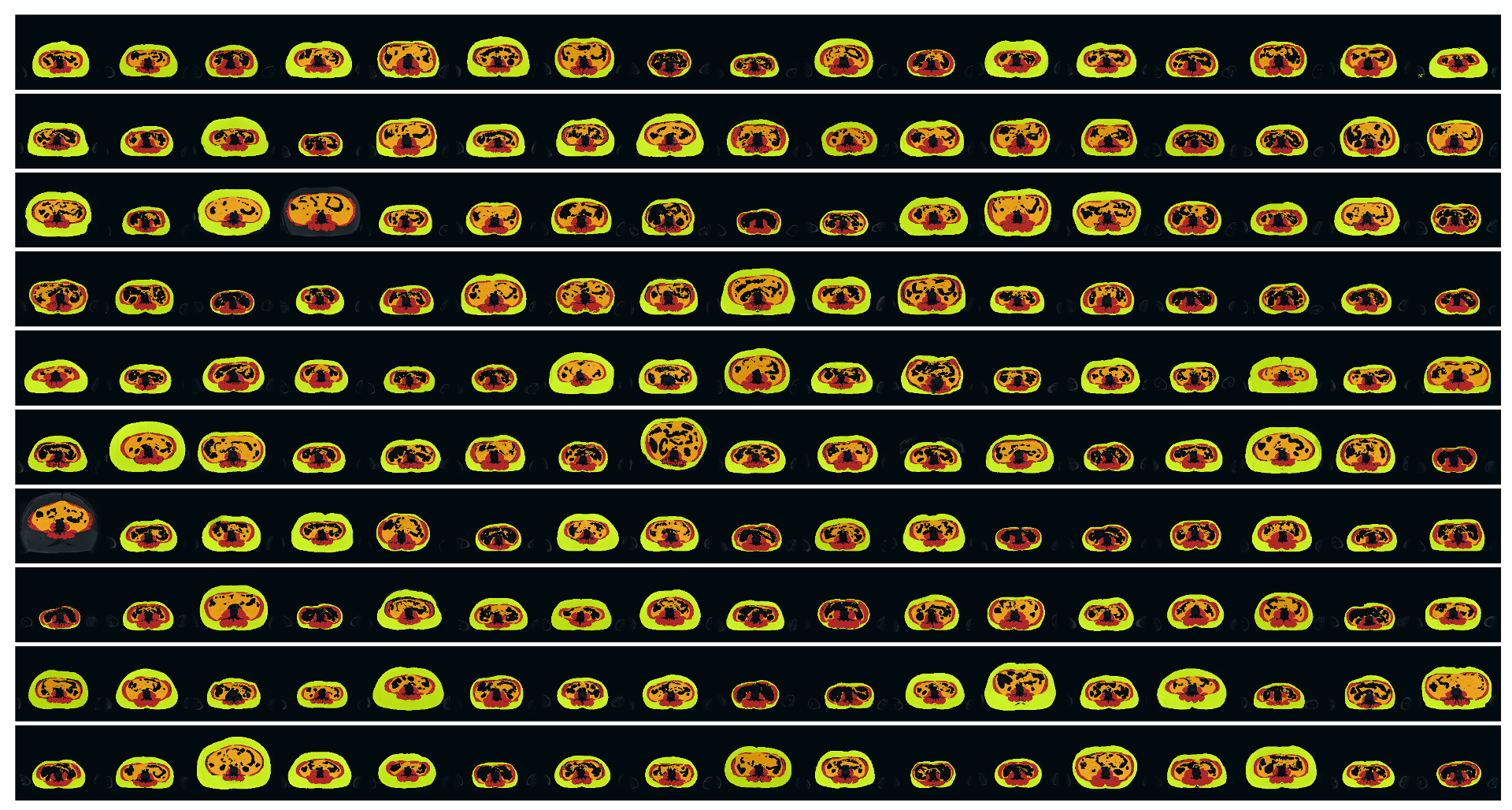
The leap was made by mapping the amounts of iron in an organ, and then using that map as a base to measure inflammation and fibrosis. These maps of tissue characteristics were foundational for 'multiparametric MRI' scans of human organs.
'It makes a huge difference for doctors to be able to see the liver in full detail,' he says. 'It makes an even bigger difference for patients.'
"I was motivated by trying to avoid so many people needing to have liver samples taken. It's a pretty uncomfortable procedure, involving putting a needle in the liver and turning it at a right angle to get a sample. Half the biopsies taken in the UK show mild or insignificant disease, meaning the biopsy itself was unnecessary. By giving doctors and surgeons a far more detailed picture, we can avoid this. It means doctors can spot disease and surgeons can plan surgery.'
"Traditionally, a surgeon won't have a good view of the liver until they open someone up, or they might decide someone is inoperable, even though a better image may have shown there was still hope. That's why we started Perspectum."
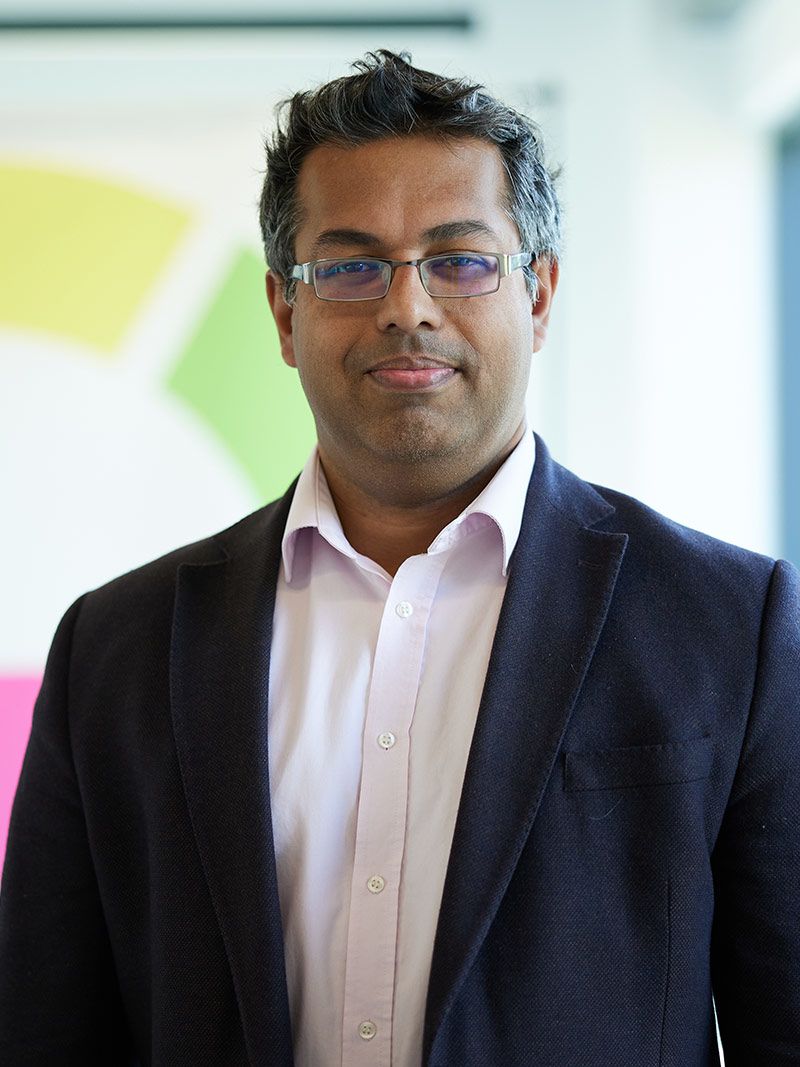
Dr Rajarshi Banerjee. Credit: Ian Wallman.
Dr Rajarshi Banerjee. Credit: Ian Wallman.
The leap was made by mapping the amounts of iron in an organ, and then using that map as a base to measure inflammation and fibrosis. These maps of tissue characteristics were foundational for 'multiparametric MRI' scans of human organs.
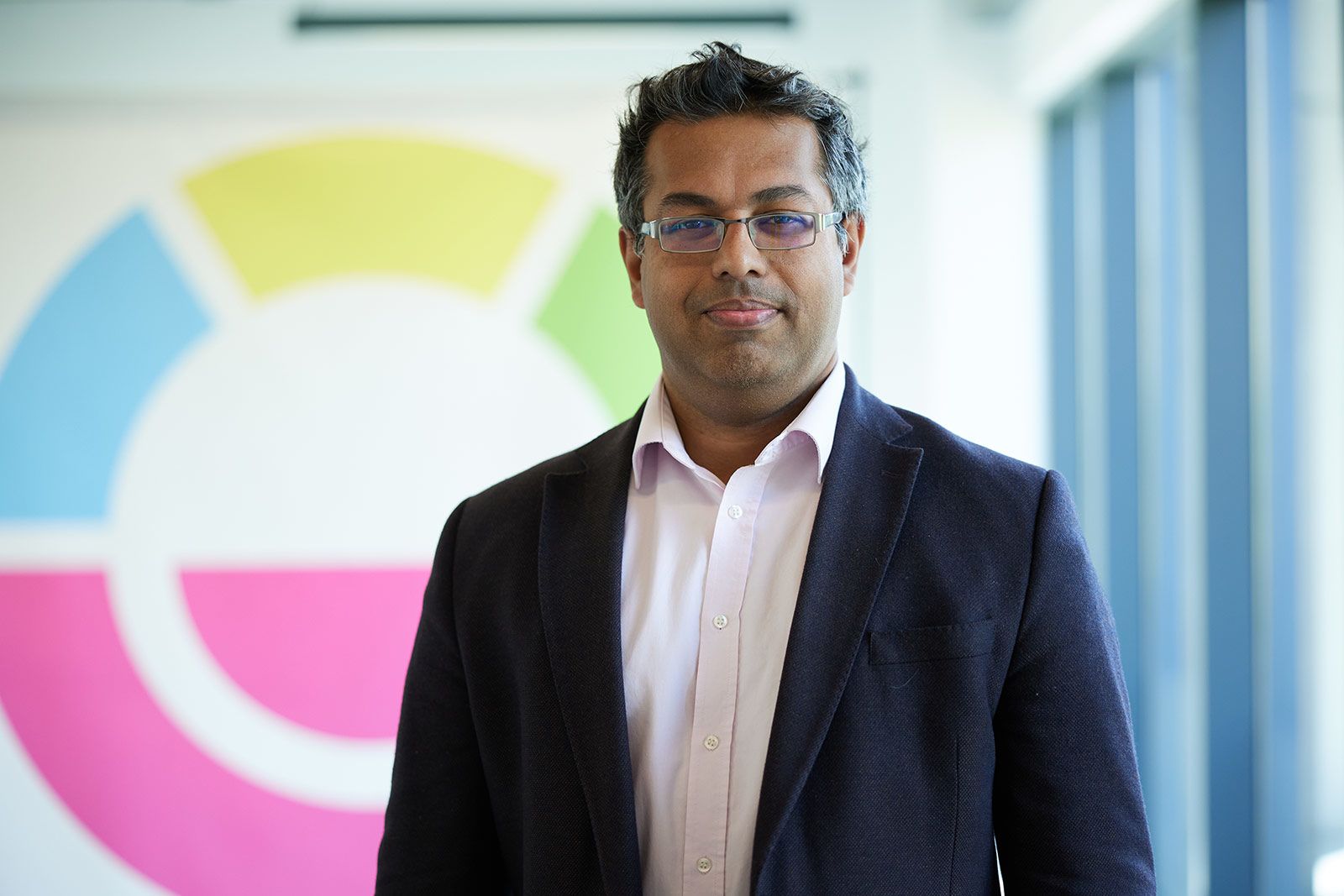
Dr Rajarshi Banerjee. Credit: Ian Wallman.
Dr Rajarshi Banerjee. Credit: Ian Wallman.
'It makes a huge difference for doctors to be able to see the liver in full detail,' he says. 'It makes an even bigger difference for patients.'
'I was motivated by trying to avoid so many people needing to have liver samples taken. It's a pretty uncomfortable procedure, involving putting a needle in the liver and turning it at a right angle to get a sample. Half the biopsies taken in the UK show mild or insignificant disease, meaning the biopsy itself was unnecessary. By giving doctors and surgeons a far more detailed picture, we can avoid this. It means doctors can spot disease and surgeons can plan surgery.'
"Traditionally, a surgeon won't have a good view of the liver until they open someone up, or they might decide someone is inoperable, even though a better image may have shown there was still hope. That's why we started Perspectum."
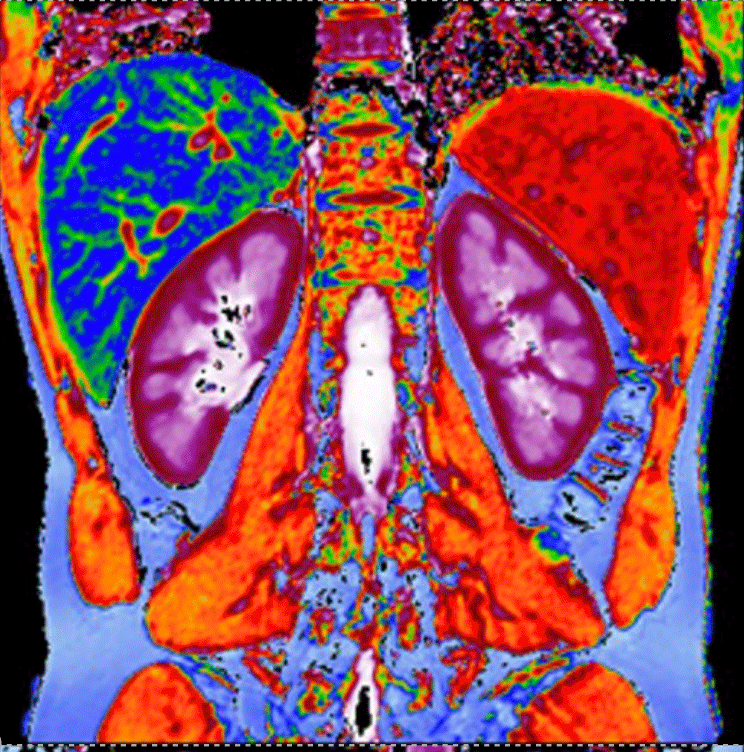
Example scan image. Credit: Perspectum.
Example scan image. Credit: Perspectum.
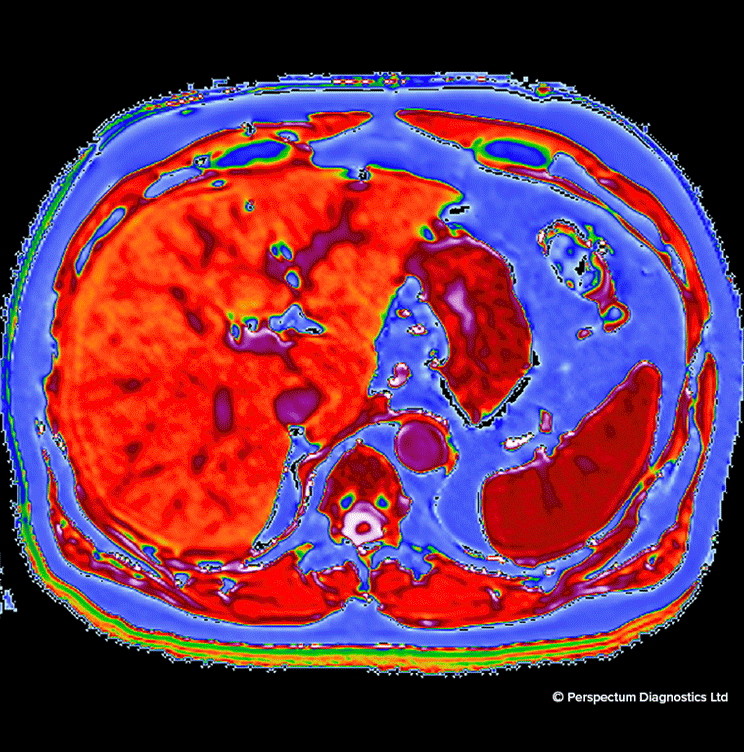
Example scan image. Credit: Perspectum.
Example scan image. Credit: Perspectum.
Launching Perspectum
Dr Banerjee knew he had made a major discovery, but he did not quite know how significant it was until he got a call from Professor Sir John Bell, Regius Chair of Medicine at the University of Oxford. 'It came out of the blue. He's the head of medicine at the University, there's nobody above him, and so when he calls to say you ought to set up a company, you take it very seriously.'
The call resulted in a meeting being lined up with Professor Sir Michael Brady, Emeritus Professor of Oncology Imaging at the University of Oxford who, crucially, had already launched several medical spinouts based in Oxford. Sir Michael remembers Dr Banerjee as delivering one of the most impressive pitches he had ever heard, including a wholehearted plea to help him save people from liver disease.
'He is one of the most impressive, impassioned people I have ever met,' Sir Michael recalls. 'I told him to license the technology because companies give you grey hair and lots of worry.'
"He told me it was his mission, with the rising tide of liver disease, to help as many people as he possibly could. As a doctor, he reasoned, he could only help the patients he sees face-to-face, but with better liver scanning technology, he could save thousands of people around the world. I was supposed to be retiring, but I was so impressed, we launched Perspectum."
Launching Perspectum
Dr Banerjee knew he had made a major discovery, but he did not quite know how significant it was until he got a call from Professor Sir John Bell, Regius Chair of Medicine at the University of Oxford. 'It came out of the blue. He's the head of medicine at the University, there's nobody above him, and so when he calls to say you ought to set up a company, you take it very seriously.'

Example scan image. Credit: Perspectum.
Example scan image. Credit: Perspectum.
The call resulted in a meeting being lined up with Professor Sir Michael Brady, Emeritus Professor of Oncology Imaging at the University of Oxford who, crucially, had already launched several medical spinouts based in Oxford. Sir Michael remembers Dr Banerjee as delivering one of the most impressive pitches he had ever heard, including a wholehearted plea to help him save people from liver disease.
'He is one of the most impressive, impassioned people I have ever met,' Sir Michael recalls. 'I told him to license the technology because companies give you grey hair and lots of worry.'
"He told me it was his mission, with the rising tide of liver disease, to help as many people as he possibly could. As a doctor, he reasoned, he could only help the patients he sees face-to-face, but with better liver scanning technology, he could save thousands of people around the world. I was supposed to be retiring, but I was so impressed, we launched Perspectum."
Shaping the business
Since the launch in 2012, Perspectum has raised more than $80m in funding and now offers a series of scanning services to doctors and surgeons, including scanning of the liver, the bile system, the gallbladder, heart, lungs and pancreas. The business is also involved in an on-going project to scan multiple organs to check the long-term impact of COVID-19.
The business model is similar to the Software as a Service routes to market chosen by IT companies. Doctors and surgeons take MRI scans anywhere in the world which are then sent to the nearest Perspectum office - in Oxford, Portugal, Dallas or Singapore - for processing by its imaging software and highly trained experts.
The business is also underpinning its core mission of helping people improve their health through a Community Diagnostics Centre within its offices in Oxford. The launch follows a UK government review which confirmed that the country needs to increase its medical diagnostics testing capabilities and get the necessary equipment out of hospitals and into the community. Dr Banerjee believes it is a sign of how businesses can support the NHS through designing new facilities with patient care and convenience front of mind.
"There's obviously a backlog of testing since COVID-19, so anything we can do to take the testing out closer to communities has got to be a good thing."
'It may sound trivial, but any doctor will tell you that the most common complaints from patients coming into a hospital are about limited parking space and transport links. Having a facility at our headquarters, which is out by a ring road with lots of parking and on a bus route, solves a lot of those problems. Rather than accepting inadequate facilities, we’ve taken the opportunity to build a clinic our relatives can use with pride.'
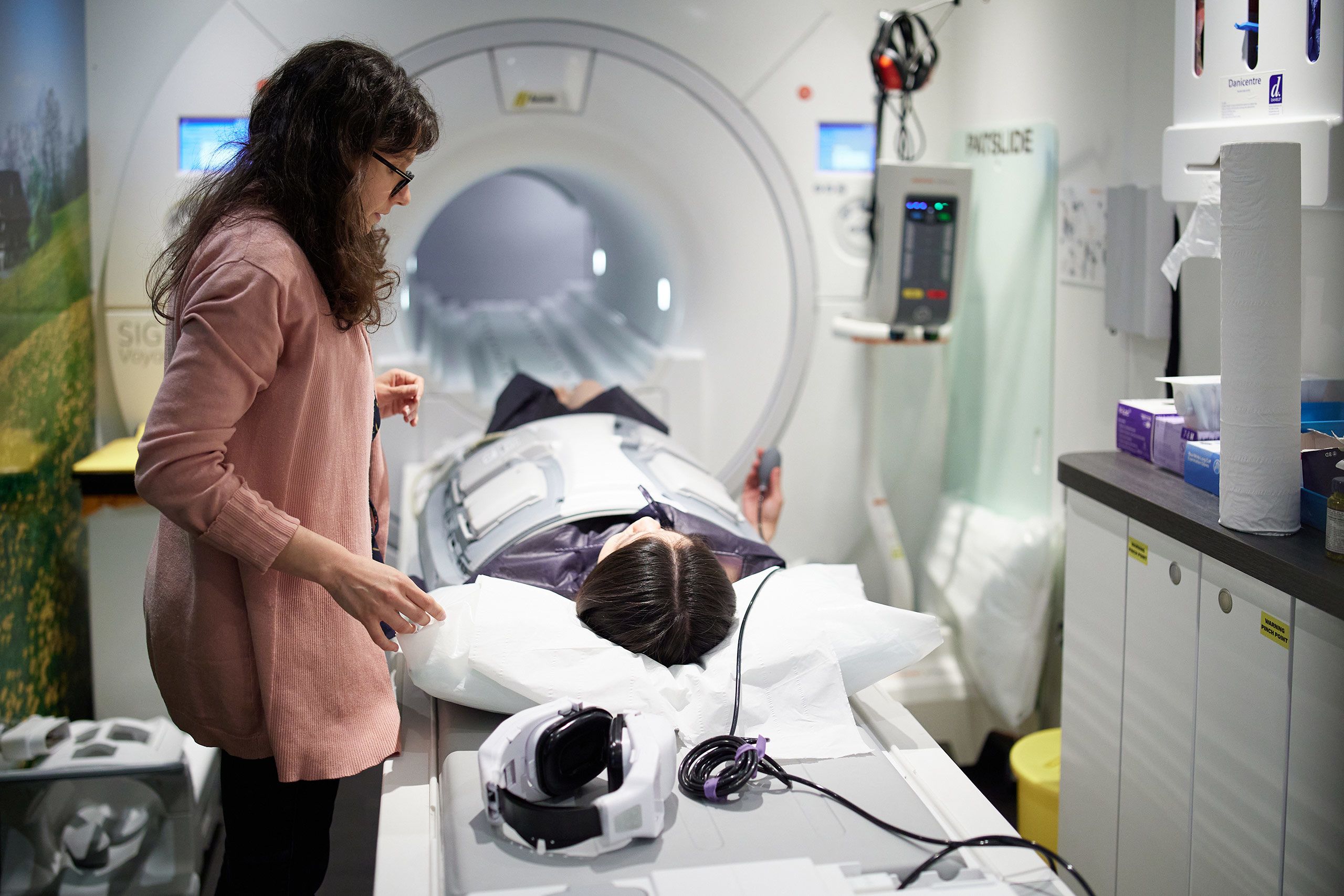
Preparing a patient for the scan. Credit: Ian Wallman.
Preparing a patient for the scan. Credit: Ian Wallman.
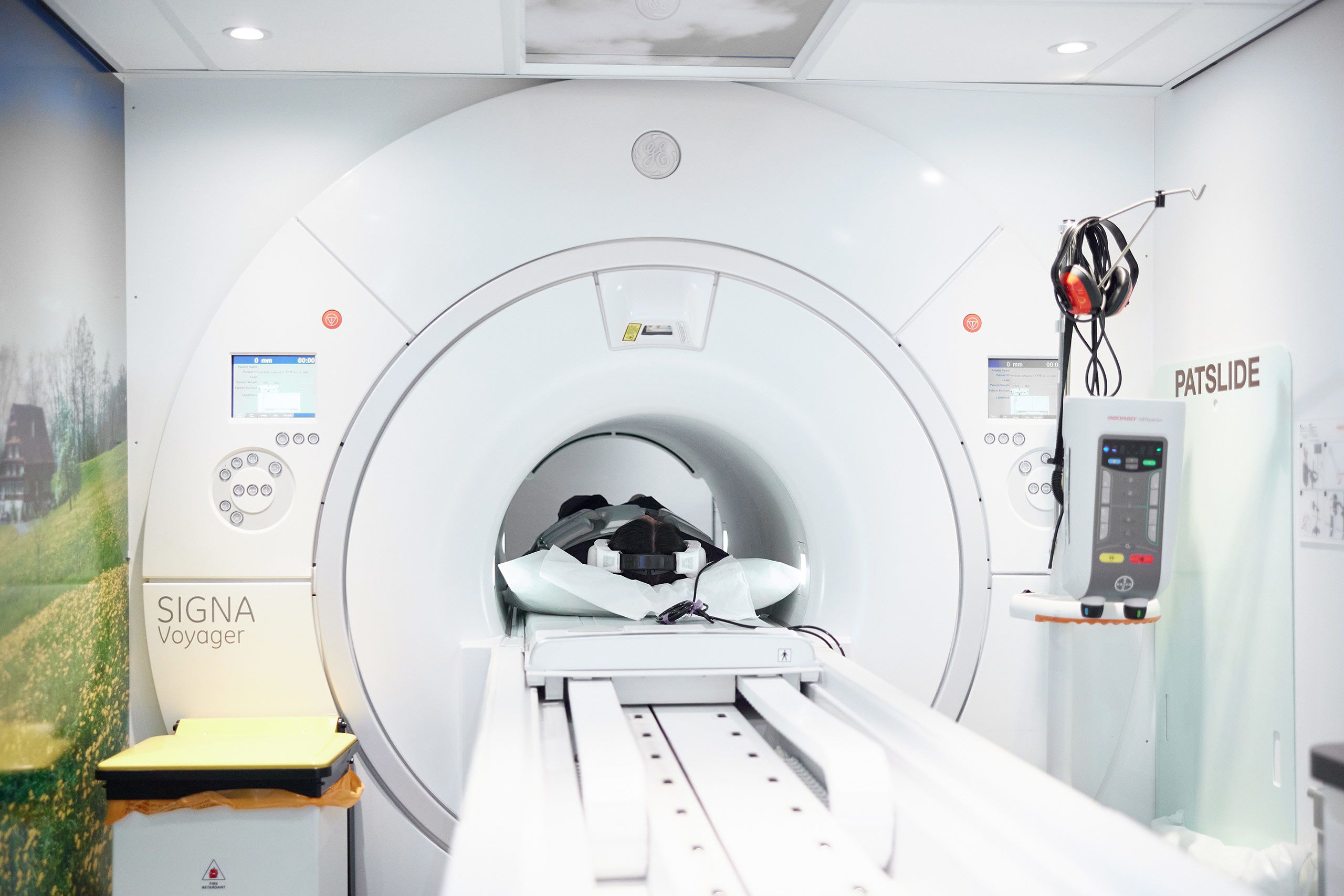
A patient in the scanner. Credit: Ian Wallman.
A patient in the scanner. Credit: Ian Wallman.
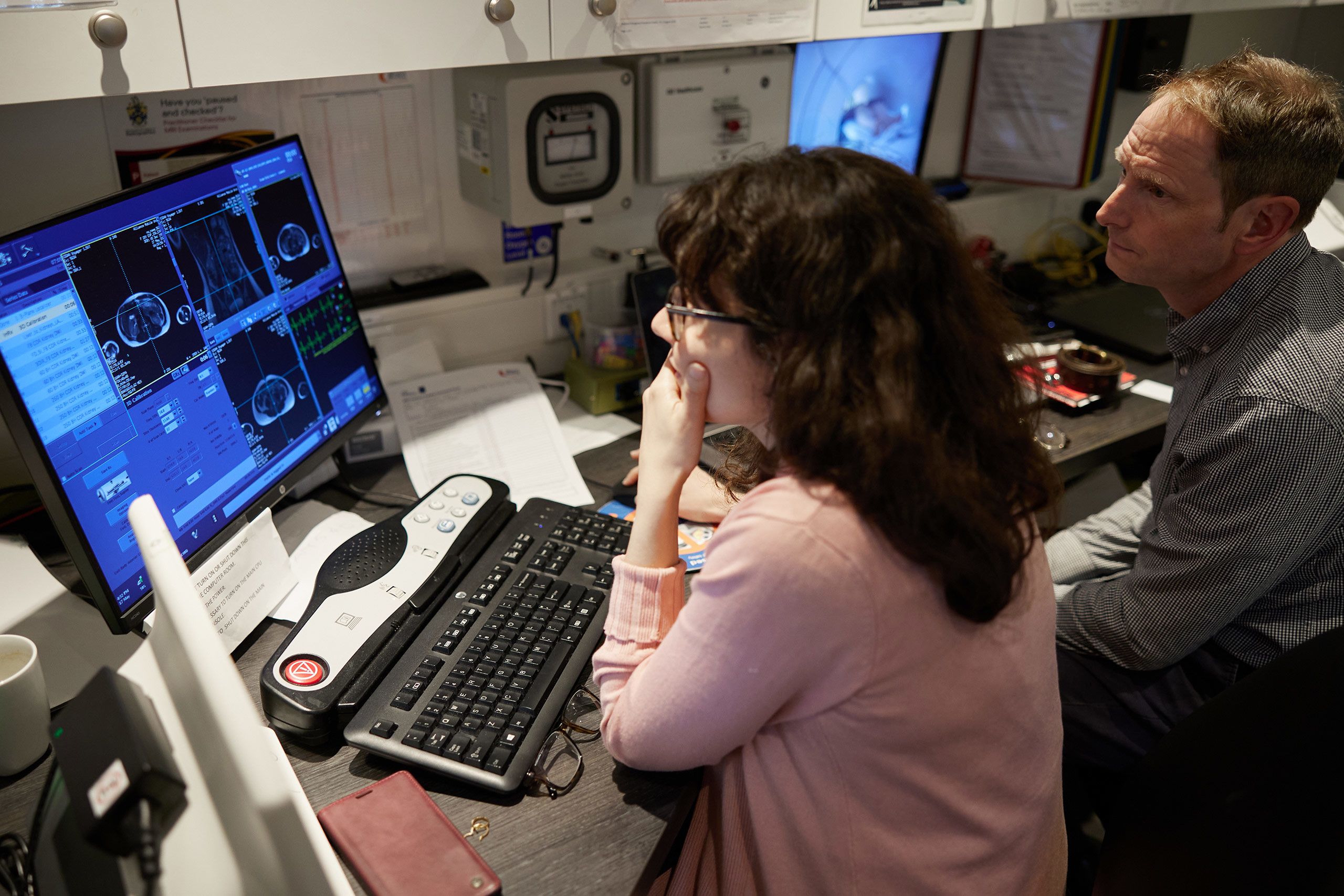
Perspectum staff analysing the scan. Credit: Ian Wallman.
Perspectum staff analysing the scan. Credit: Ian Wallman.
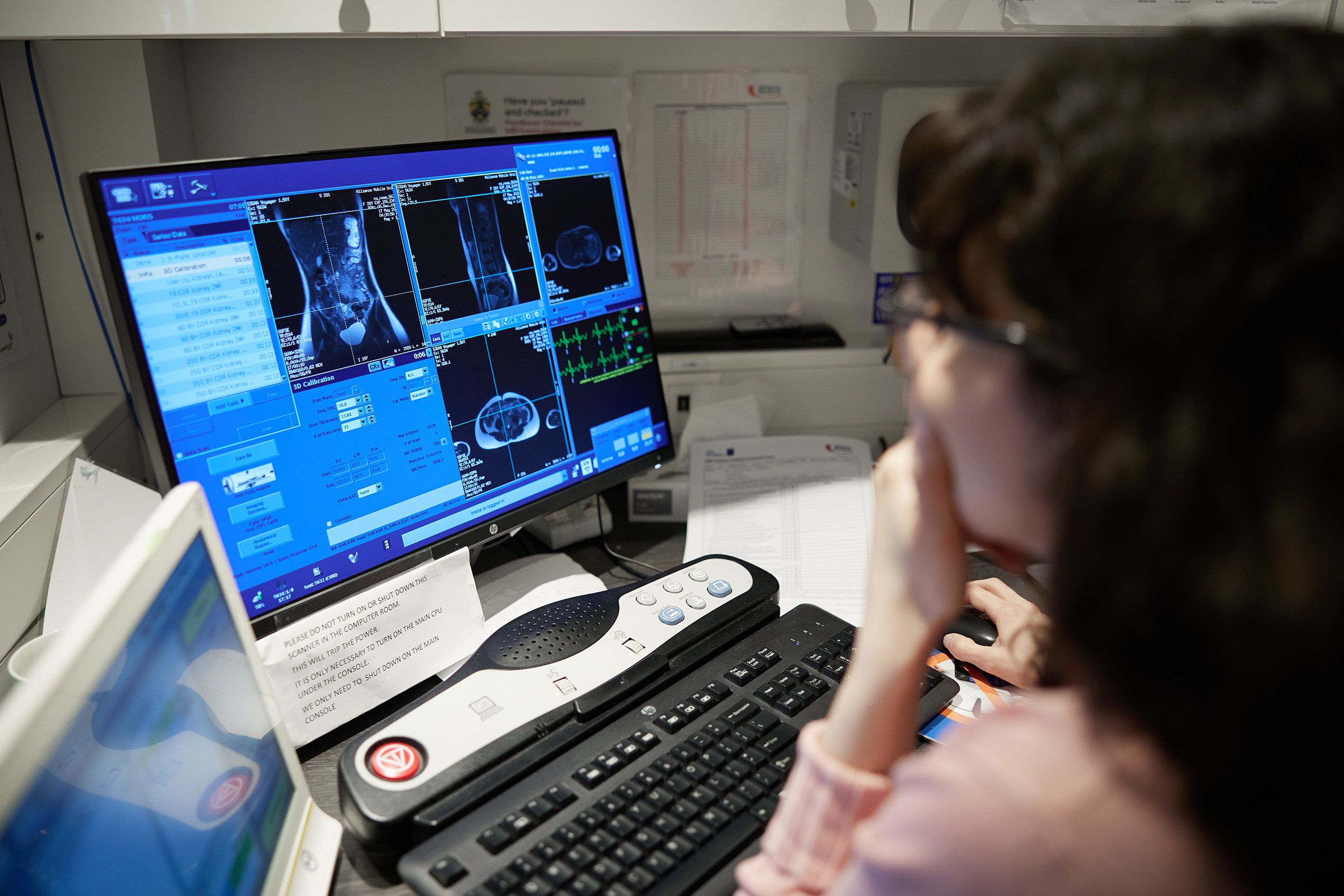
Analysing the scanned images. Credit: Ian Wallman.
Analysing the scanned images. Credit: Ian Wallman.
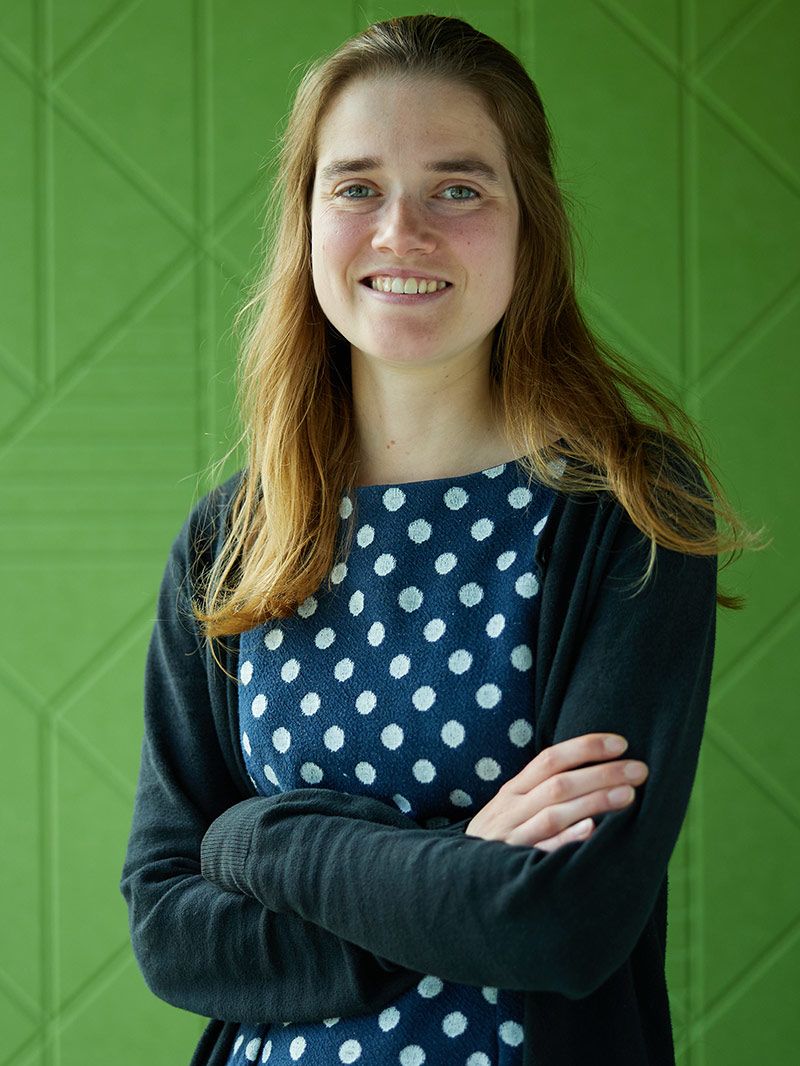
Lis Pickles. Credit: Ian Wallman.
Lis Pickles. Credit: Ian Wallman.
Oxford's supply of talent
Dr Banerjee chose Oxford to set up Perspectum largely because he was already based at the University after finishing his DPhil. He had studied medicine at the University between 1996 and 2002, before practising throughout London and the South East. In 2008, he returned to study for his DPhil at the University of Oxford NHS Trust John Radcliffe hospital.
"Oxford is far and away the best medical school on the planet. It's where so many medicines and breakthroughs have been discovered, it's got a great curriculum and amazing doctors teaching. It attracts more research funding than other schools, so that's why I then came back to complete my DPhil."
As such, the University of Oxford is a great source of newly-qualified talent and DPhil students, he says, which meant it made perfect sense to not only set up the business in Oxford, but also to retain the city as its main base.
Lis Pickles is one such DPhil student. She is supervised at Perspectum by Professor Brady with her studies focussing on using MRI to detect liver cancer. The DeLIVER programme to which she contributes is a multi-partner project, including Perspectum, that is led by Professor Ellie Barnes, Ludwig Adjunct Scholar and Professor of Hepatology and Experimental Medicine at the Nuffield School of Medicine at the University of Oxford.
The central premise Lis is working on is aligned with Dr Banerjee's original supposition that MRI technology can be used to offer doctors better clarity with liver scans which, in this case, would be used in early cancer diagnosis and treatment. At the moment it remains difficult to spot early-stage cancers in the liver with ultrasound and it is challenging to characterise tumours by their size.
Lis believes the work is showing very good signs of progress as the programme moves into clinical trials. It was this opportunity to do translational research, to help improve medical treatment and deliver real-world impact, that attracted her to Oxford University and Perspectum to study for her DPhil.
"The University is closely linked with the hospitals, so I've been doing a lot of scanning at the John Radcliffe hospital, and being with Perspectum, you are directly linked to the real world so you can see the impact your research is having."
'There's lot of translational research going on at the University and Perspectum so it's not just your own projects, it's also exciting to see lots of other projects that are being translated to the clinic. It's very exciting to see what's coming up next.'
Oxford's supply of talent
Dr Banerjee chose Oxford to set up Perspectum largely because he was already based at the University after finishing his DPhil. He had studied medicine at the University between 1996 and 2002, before practising throughout London and the South East. In 2008, he returned to study for his DPhil at the University of Oxford NHS Trust John Radcliffe hospital.
"Oxford is far and away the best medical school on the planet. It's where so many medicines and breakthroughs have been discovered, it's got a great curriculum and amazing doctors teaching. It attracts more research funding than other schools, so that's why I then came back to complete my DPhil."
As such, the University of Oxford is a great source of newly-qualified talent and DPhil students, he says, which meant it made perfect sense to not only set up the business in Oxford, but also to retain the city as its main base.
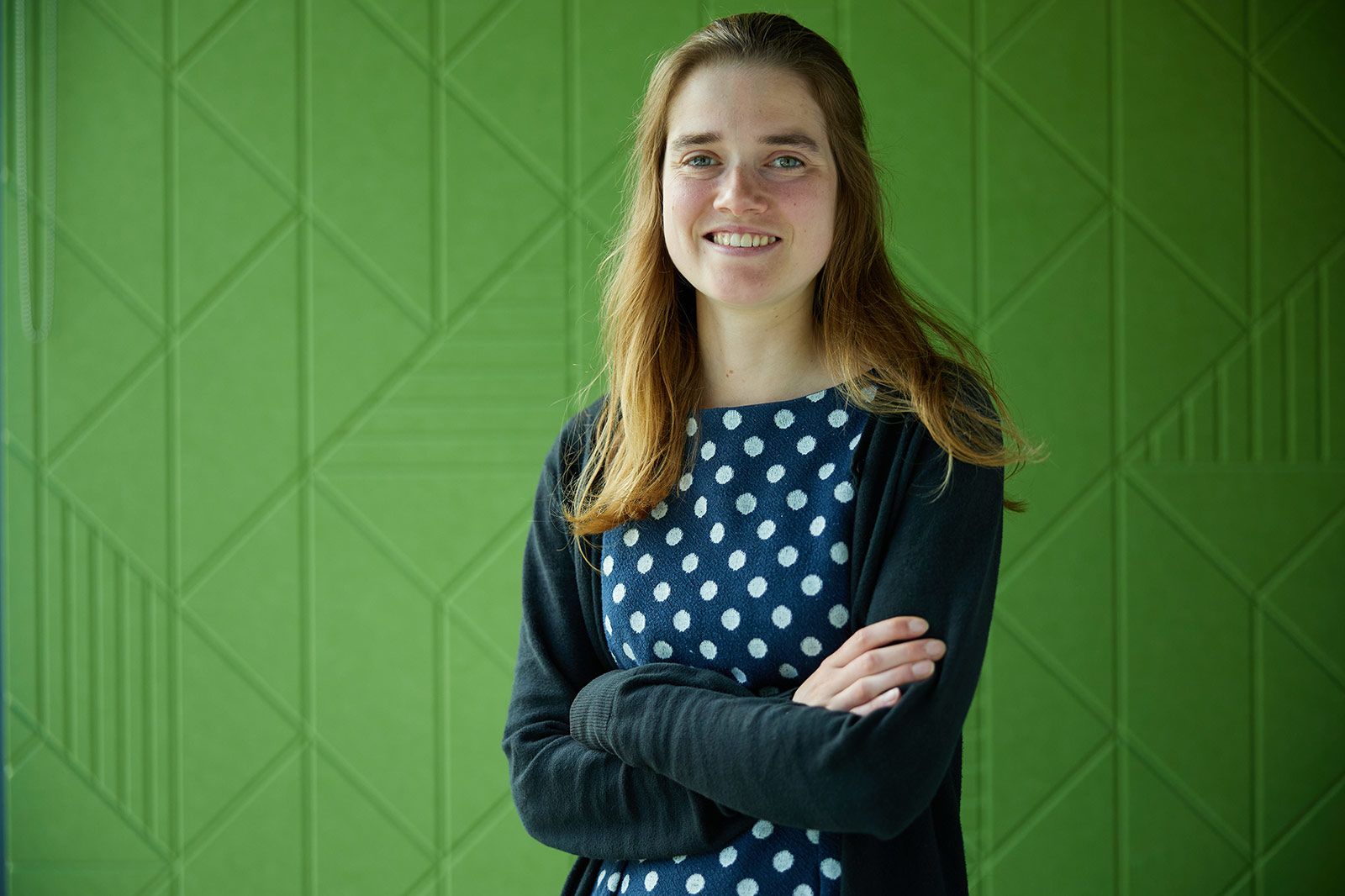
Lis Pickles. Credit: Ian Wallman.
Lis Pickles. Credit: Ian Wallman.
Lis Pickles is one such DPhil student. She is supervised at Perspectum by Professor Brady with her studies focussing on using MRI to detect liver cancer. The DeLIVER programme to which she contributes is a multi-partner project, including Perspectum, that is led by Professor Ellie Barnes, Ludwig Adjunct Scholar and Professor of Hepatology and Experimental Medicine at the Nuffield School of Medicine at the University of Oxford.
The central premise Lis is working on is aligned with Dr Banerjee's original supposition that MRI technology can be used to offer doctors better clarity with liver scans which, in this case, would be used in early cancer diagnosis and treatment. At the moment it remains difficult to spot early-stage cancers in the liver with ultrasound and it is challenging to characterise tumours by their size.
Lis believes the work is showing very good signs of progress as the programme moves into clinical trials. It was this opportunity to do translational research, to help improve medical treatment and deliver real-world impact, that attracted her to Oxford University and Perspectum to study for her DPhil.
"The University is closely linked with the hospitals, so I've been doing a lot of scanning at the John Radcliffe hospital, and being with Perspectum, you are directly linked to the real world so you can see the impact your research is having."
'There's lot of translational research going on at the University and Perspectum so it's not just your own projects, it's also exciting to see lots of other projects that are being translated to the clinic. It's very exciting to see what's coming up next.'
Oxford embracing entrepreneurs
Sir Michael believes the city is home to so many exciting start-up and scale-ups, such as Perspectum, because 'active leaders' at the University in the 1980s and 1990s wanted to ensure discoveries did not remain in the laboratory. These pioneers ensured that the success of Oxford Instruments, the University's first spinout and original pioneer of MRI scanning, was not a one-off by keeping up the momentum of commercialisation. One of the major advances was to form the technology transfer office ISIS, now known as Oxford University Innovation, which allows IP developed at the University to be licensed by spinouts.

The Perspectum headquarters in Oxford. Credit: Ian Wallman.
The Perspectum headquarters in Oxford. Credit: Ian Wallman.
'The biggest thing that happened between my arrival in Oxford in 1985 and the situation 15 or so years later, was a culture change within the University that embraced entrepreneurship,' he says.
'Between 2003 and 2005, I started getting a bunch of my academic colleagues in engineering science asking if they could meet me because they also wanted to start a company. Then, I noticed that I was starting to get Postdocs banging on my door and next it was DPhil students. In my final year as a fully paid academic in 2010, I had three lots of undergraduates bang on my door saying that they had an idea, including Dr Banerjee.
"That's all down to the change in the culture. The more the University supports entrepreneurs, the more success it has had and the more people have been attracted to Oxford. It's a virtuous circle."
Perspectum is now a global company with 280 employees. Its technology is being used across the world to improve detection, and help early intervention, in liver disease, multi-organ disease, such as long COVID and diabetes, and solid organ tumours. The scale of the challenge, and opportunity is huge, with over 90 million people in the US alone with liver disease, and over 1m people with long COVID in the UK alone.
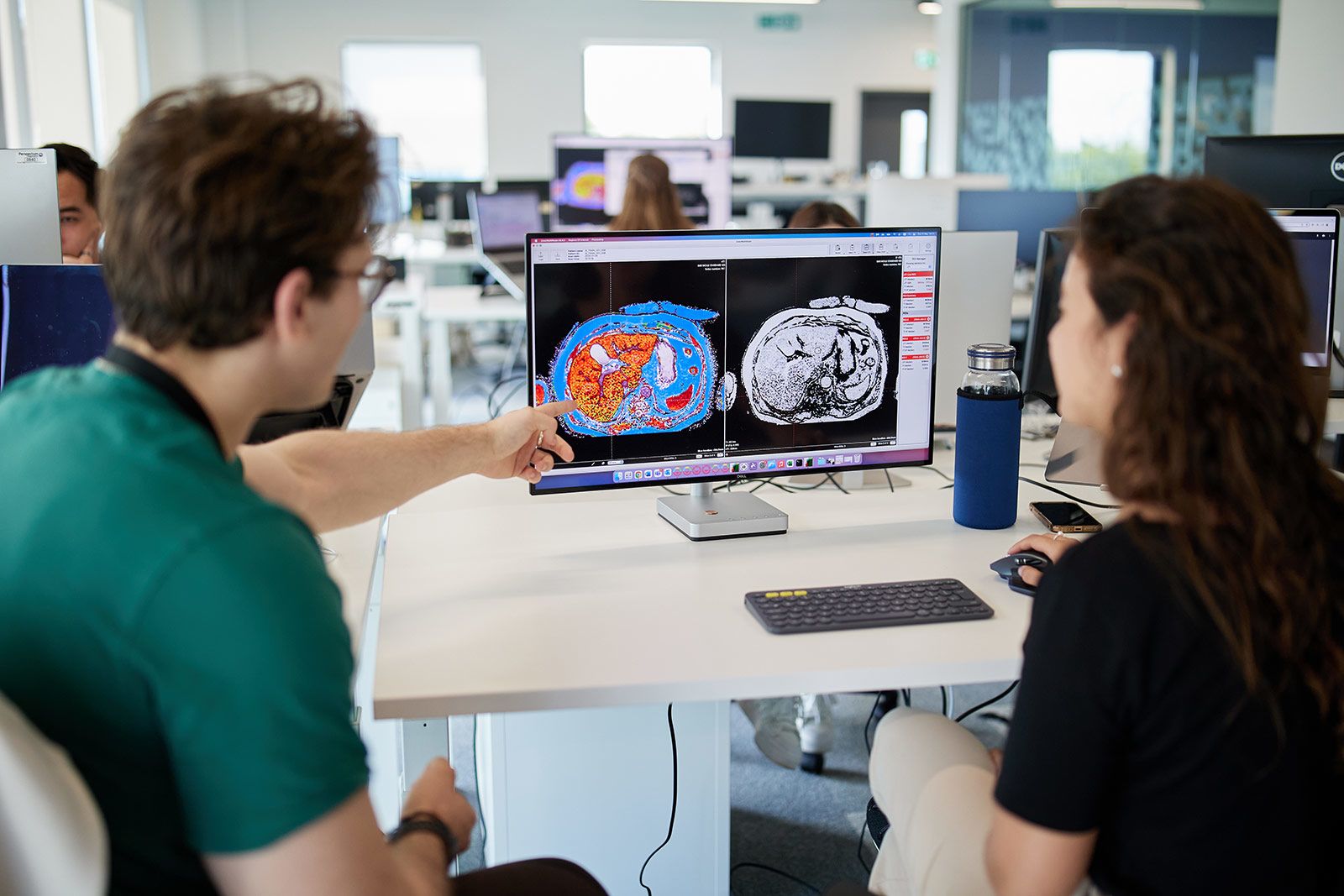
Scan analysis at the Perspectum headquarters in Oxford. Credit: Ian Wallman.
Scan analysis at the Perspectum headquarters in Oxford. Credit: Ian Wallman.
As the company gears up to meet the challenge, Dr Banerjee confirms that it remains committed to Oxford as its headquarters, and not just because it's where it has its origins. For Perspectum, the pipeline of highly skilled medical staff and talented scientists coming from the University will be key as the company continues to grow and meet tomorrow's medical challenges and patient needs.
Inspired by our innovators?
Get in touch with collaboration@admin.ox.ac.uk or visit https://www.ox.ac.uk/research/engage-with-us to see how we could help you make a difference.


